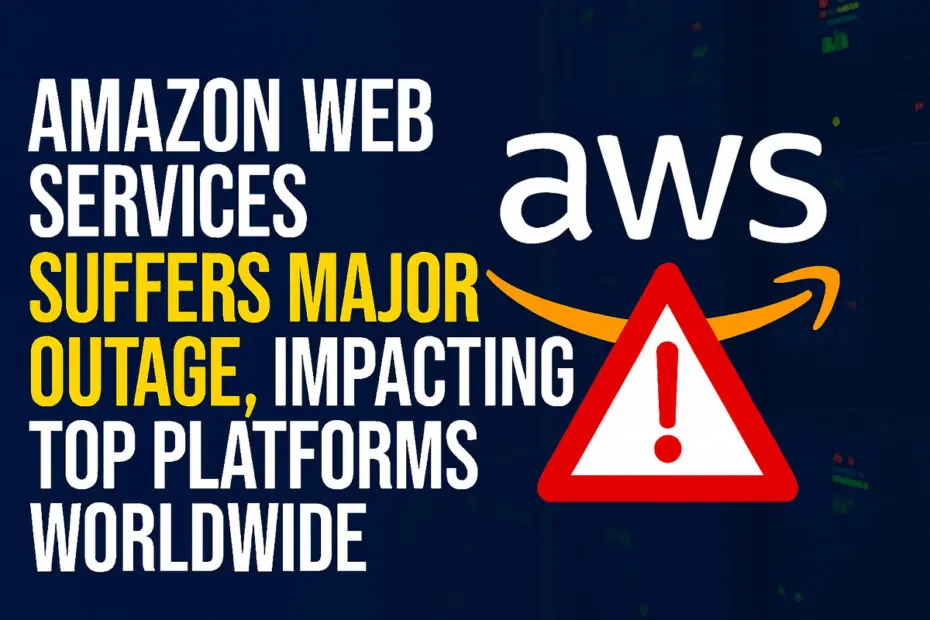Update: According to AWS, this issue has been resolved, but some services, such as AWS Config, Redshift, and Connect, still have many messages that will be processed in the next few hours. AWS stated that they will share a detailed post-event summary.
Overnight, an outage at Amazon Web Services (AWS) knocked many popular apps and websites offline, showing once again how much of the internet relies on a single cloud provider. In this case, AWS is suspected to be the cause.
Trouble first appeared shortly after midnight PDT, when the AWS status page showed rising error rates and slowdowns across several key services in its US-EAST-1 region, a major center for internet traffic.
Amazon later traced the problem to a DNS resolution error affecting the DynamoDB service in the US-EAST-1 region. In simple terms, it was like the system’s address book stopped working, leaving applications unable to locate or connect to key AWS services. The company added that other global features tied to the same region, including IAM updates, were also impacted.
The impact was felt almost instantly. Alexa devices stopped responding, failed to run routines, and even missed scheduled alarms. Reddit users struggled to log in, and Perplexity CEO Aravind Srinivas confirmed the company’s AI search tool had gone offline. The outage spread across a long list of major platforms, including Slack, Duolingo, Venmo, Zoom, and streaming services like Hulu and Disney+, among them.
Perplexity is down right now. The root cause is an AWS issue. We’re working on resolving it.
— Aravind Srinivas (@AravSrinivas) October 20, 2025
Gamers were hit hard too, with many unable to log in to Fortnite, the Epic Games Store, Roblox, and the PlayStation Network, among others.
By 3:35 AM PDT, Amazon reported that the DNS problem had been fully resolved and most AWS services were back online. The company warned, however, that some users might still see occasional slowdowns as systems returned to normal. Customers still having trouble connecting were advised to clear their local DNS cache.
It’s no surprise that an incident of this size made people think of a cyberattack, especially with global tensions running high. Memories of WannaCry, NotPetya, and SolarWinds are still fresh, but this time the issue came down to an internal slip-up. Even so, for the companies and users affected, the experience felt no different, another wake-up call about how much of the web depends on a few key systems.
Maybe you would like other interesting articles?

